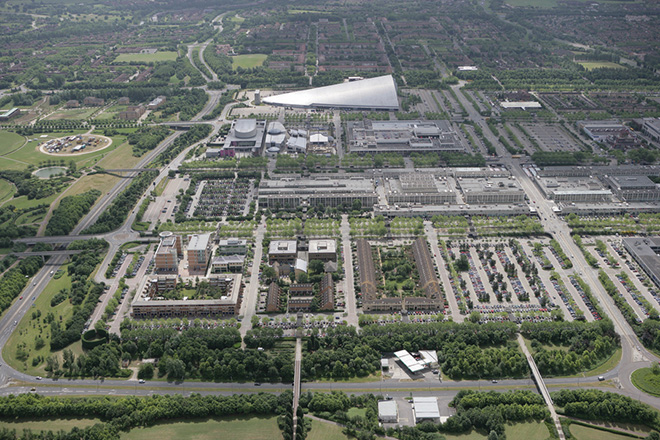THE CASE for investment in the Oxford-Milton Keynes-Cambridge Arc has been reinforced with the inclusion of all three urban areas among the ten fastest-growing UK cities in a new report.
Milton Keynes was one of 11 cities to see its score decline from last year’s index in the Good Growth for Cities 2019 published by professional services firm PwC. However, it remains fifth in the list of highest-performing cities – behind Oxford, Reading, Southampton and Bristol, with Cambridge in ninth place.
The index aims to show that there is more to economic well-being than just measuring GDP. It measures the performance of 42 of the UK’s largest cities, England’s Local Enterprise Partnerships and ten combined authorities against ten factors which the public feels are most important when it comes to economic wellbeing.
These include jobs, health, income and skills, as well as work-life balance, house-affordability, travel-to-work times, income equality, environment and business start-ups.
Milton Keynes scores highly in jobs and income distribution but rates below average on work-life balance, house price to earnings and transport. The city saw the biggest increase in score since 2015-17 in the work-life balance measure and the largest decrease in score over the same period was in health.
The price of success for Milton Keynes is housing affordability. It is ranked in the index as the seventh city for highest house prices to earnings ratio, behind London, Cambridge and Bristol.

“It is testament to the collaboration and entrepreneurial spirit across public and private partnerships in the region, that Oxford, Cambridge and Milton Keynes are all in the top ten performing cities,” said Sam Taylor, PwC’s office senior partner in Milton Keynes.
“This demonstrates we have three fantastic pillars to continue to build our Arc vision on by continuing to attract investment in business, infrastructure, research & development and education. Our shared aspirational vision for the Arc will see a stream of businesses and infrastructure connecting these top performing cities.
“However, as is seen in many cities’ performance this year, maintaining the momentum of growth is dependent on continued investment in infrastructure through key projects, such as the bid for Milton Keynes University, and road and rail infrastructure across the Arc.”
The South East Midlands LEP area, in which Milton Keynes sits, was ranked 18th out of 37 LEP areas, and saw the biggest increase in its work-life balance score, and the largest decrease in house price to earnings.
Mr Taylor said: “Despite a backdrop of uncertainty local leaders have had significant success in delivering good growth in Milton Keynes and the wider region. Our research shows the need to take a comprehensive approach to growth, focusing on improving productivity to compete on a global stage, but also on ensuring fairness and inclusive growth so that people and places don’t feel left behind.”
In all, 11 cities in the index – including Milton Keynes – have witnessed a decline in their score since the 2018 index. PwC says this is driven by the fact that improvement, especially for top performers, has hit a relative ceiling. However, the price of success has become increasingly evident, with declines in transport and housing highlighting the ongoing infrastructure challenges faced by UK cities. There has also been a decline in skills among people aged 16 to 24 and a decline in overall health.
The 2019 index shows nine in ten cities in 2016- 2018 having scores higher than the average for all cities in the index’s first study period of 2011-2013. This highlights the rate of recovery since the financial crisis, the report says, revealing strong employment growth and improved work-life balance due to more flexible working patterns.
PwC partner and local government leader Jonathan House said: “In an era of political, technological and environmental disruption, cities and regions that want to get ahead, need to do things differently. Even with the uncertainty of Brexit, over the last year local leaders have had significant success in delivering good growth in their cities and regions.
“Local leaders need to take a broad view on what economic success means, focusing on the outcomes they want to achieve in terms of inclusive growth, community resilience and improved experience, and crucially, having a plan to translate those ambitions into reality.”
Skills levels and the number of new businesses started have shown the largest improvement, he added. “This is a result of leaders focusing on building new opportunities and investing in the talent of their city and region.
“The UK’s cities are known globally for their skills, innovation and entrepreneurial spirit. Our most successful cities don’t compete against other UK cities, they compete against cities across Europe, the Middle East and the US. As the UK’s position on the world stage shifts, cities and regions will need to reposition themselves too, and consider how they can stand out and compete globally, improve productivity and support innovation, while also creating places that are fair and inclusive. ”


